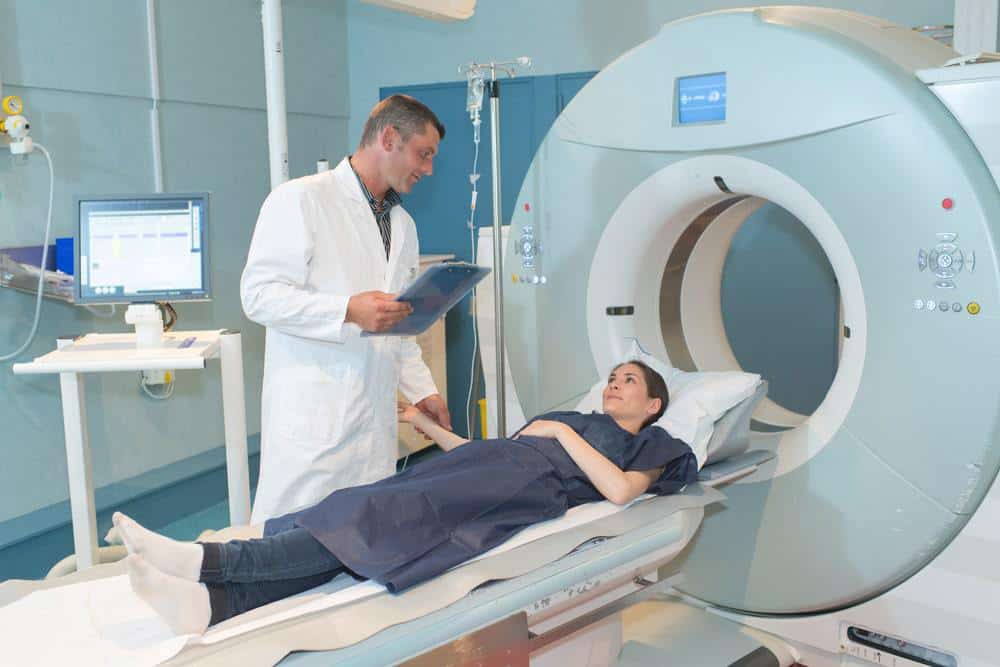If you suffer a head injury during a car accident, while playing sports, or from a slip and fall, then you should get evaluated for a traumatic brain injury. This kind of injury can significantly impact your health and well-being, so you want to get checked out by a doctor as soon as possible. A traumatic brain injury, or TBI, can affect you physically, cognitively, and psychologically. The most common type of traumatic brain injury is a concussion. Every year in the United States, over one million people get diagnosed with a type of traumatic brain injury. One way to diagnose a traumatic brain injury is by scheduling an Atlanta MRI scan near you. Several diagnostic tests can help your doctor determine whether you have suffered a traumatic brain injury and help manage your progress through treatment and recovery.
When to See a Doctor for a Head Injury
Any time you suffer a serious head injury, you should always err on the side of caution and visit a doctor as soon as possible. If you bump your head hard enough to cause a bruise, swelling, or even an open wound, then you want to make sure there isn’t damage to your brain as well. The skull offers a thick outer layer of protection to your brain, and there are flexible layers of soft tissue and spinal fluid that allow the brain to gently shift around inside the skull as your body moves. However, a sudden and serious jolt to the head and body can cause the brain to hit the side of the skull, leading to bruising or even bleeding on the brain. If you experience headaches, dizziness, nausea, sensitivity to light and sound, or feel disoriented after suffering a blow to the head, then visit your doctor to get a thorough examination.
Common Causes of a TBI
Common causes of a traumatic brain injury include car accidents, sports injuries, falls, and other reasons for a blow to the head. Concussions are common in car accident injuries when the head makes contact with the steering wheel, window, dashboard, or another part of the vehicle. Contact sports are commonly associated with head injuries like a concussion, especially in football, hockey, and soccer. You could also fall and hit your head while playing a high-energy sport that could lead to a concussion. Adults age 65 and over are more likely to suffer a traumatic brain injury from a fall that causes them to hit their heads. In fact, falls cause almost half of all traumatic brain injuries that get treated in hospitals every year.
How to Diagnose a Traumatic Brain Injury
When you visit a doctor after suffering a head injury, they will want to evaluate you for a possible traumatic brain injury. They will want to know how the injury occurred and whether or not you lost consciousness. Let your doctor know if you experienced any dizziness, difficulty with certain movements, trouble speaking, or any other side effects. There are certain tests that can also help evaluate your physical and cognitive responses after a potential head injury. Your doctor may also want to run diagnostic imaging tests on your head to get a clearer picture of any damage to your brain or skull. If you visit an emergency room, your doctor is more likely to run a CT scan, which is a quick scan that will help show if there is any concern for bleeding or swelling on the brain. An MRI scan takes longer to complete but provides your doctor with the clearest images of the affected area. Your doctor may request repeat MRI scans immediately after the injury and also to monitor your progress through your treatment and recovery process.
Treatment Options for a TBI
The treatment for a traumatic brain injury will depend on the severity of the injury. If you have a mild traumatic brain injury like a concussion, then your doctor may recommend rest and close monitoring at home. You may need to avoid certain activities, and your doctor may recommend you wait to return to work or school until it is appropriate.
Visit one of our AICA Orthopedics locations in metro Atlanta and schedule an MRI scan with us. Our team of doctors has access to MRI scans and other diagnostic tools in-house, which means you can speak with a doctor and get the scans you need all in one convenient location.





